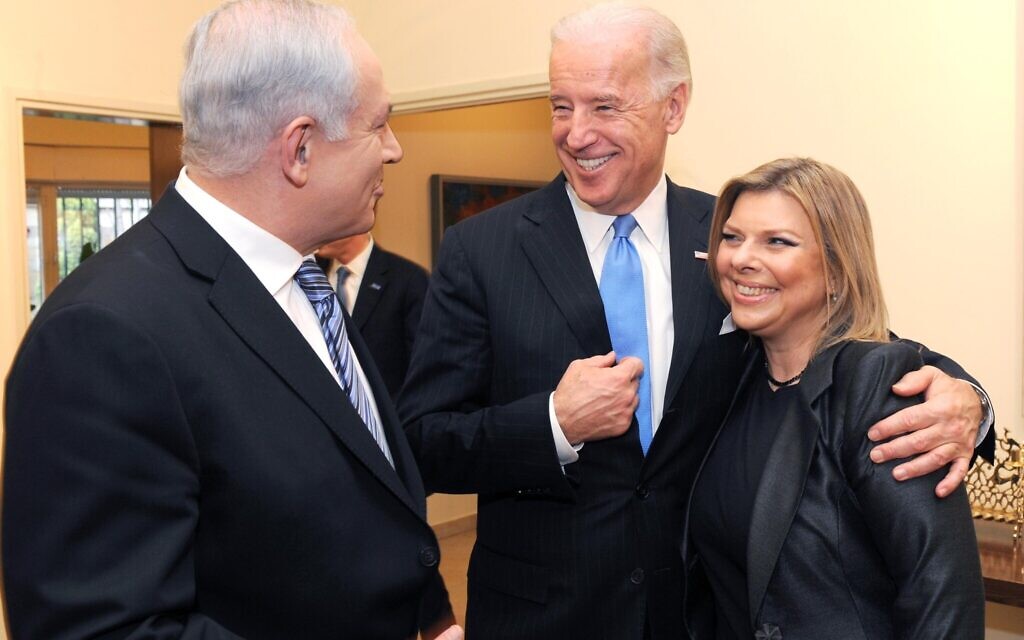U.S. President Donald Trump was Israeli Prime Minister Benjamin Netanyahu’s best friend in Washington, a generous benefactor who bestowed gifts on Israel until the November 3 presidential election.
Like the vast majority of Israelis, Netanyahu hoped that Trump, the Republican incumbent, would prevail over Joe Biden, the Democratic challenger. With Biden’s victory, Netanyahu will need to accustom himself to a new face in the White House, with all its attendant consequences.
On the day before the election in the United States, the Israel Democracy Institute released survey on Israeli attitudes toward the two candidates. It showed that Israelis were unambiguously pro-Trump.
Among Jews, 7o percent voiced support for Trump, while only 13 percent favored Biden. Seventeen percent had no opinion. Broken down by political orientation, 82 percent of right-wingers and 62 percent of centrists supported Trump, while 40 percent of left-of-center Jews regarded Trump as the preferred candidate.
There was less enthusiasm for Trump among Israeli Arabs, who comprise about 20 percent of Israel’s population. Thirty six percent were pro-Trump, while 31 percent were favorably disposed to Biden. Thirty three percent said they did not know.
Among all Israelis, 63 percent endorsed Trump, compared to 17 percent who favored Biden. Twenty percent offered no opinion.
Netanyahu, the leader of the right-wing Likud Party, was a mirror reflection of Israelis’ preference for Trump, who was regarded as the most pro-Israel president in American history.
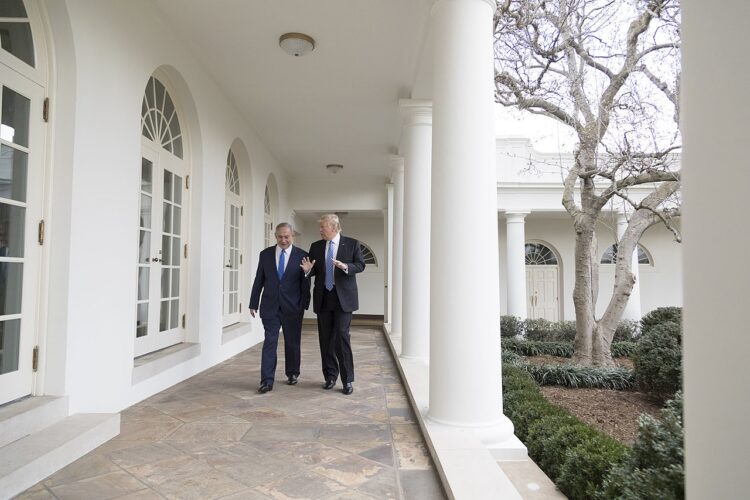
Whatever one may think of Trump in terms of his character and his policies, he kept faith with Israel and honored all his 2016 election campaign promises.
He recognized Jerusalem as Israel’s capital and moved the U.S. embassy in Tel Aviv to Jerusalem. He withdrew from the 2015 Iran nuclear agreement, which Netanyahu continually blasted, and applied economic pressure on the Iranian government. He recognized Israel’s sovereignty over the Golan Heights. He declared that Israeli settlements in the occupied areas did not contravene international law. He produced a peace plan that Netanyahu could well have drafted himself. He cut off funding to the United Nations Relief and Work Agency, which assists Palestinian refugees throughout the Middle East. He closed the PLO’s mission in Washington. He appointed a mediator to facilitate talks on Israel’s maritime border with Lebanon.
Trump, too, played an integral role in convincing the United Arab Emirates, Bahrain and Sudan to normalize relations with Israel. In exchange, Netanyahu was forced to make two concessions. He suspended his plan to annex the Jordan Valley and West Bank settlements and outposts. And he bowed to Washington’s desire to sell the F-35 fighter jet to the United Arab Emirates, one of the United States’ closest allies in the Middle East.
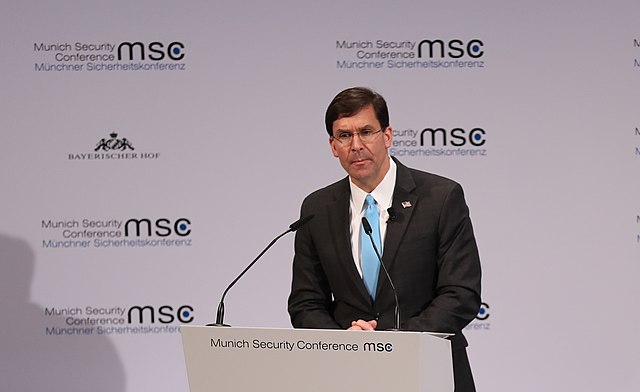
Following an announcement by U.S. Secretary of Defence Mark Esper that the United Arab Emirates would be permitted to purchase the F-35, the Trump administration pledged that Israel’s qualitative military edge would be maintained through the sale of super sophisticated American weapons that Israel has not been permitted to buy until now.
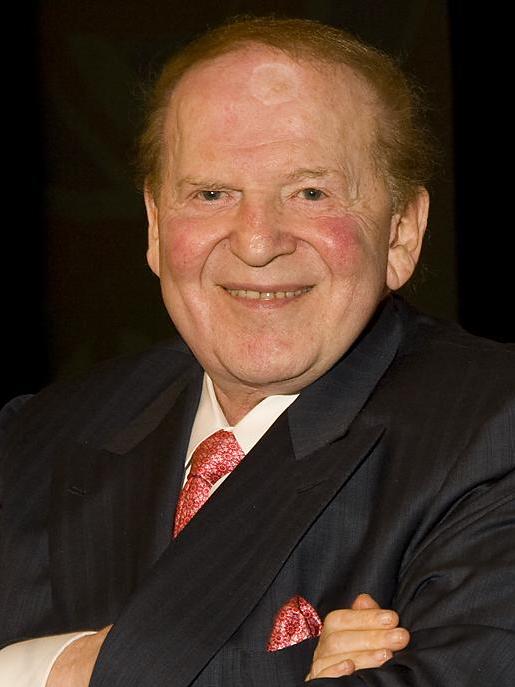
Several days before the election, Trump lifted a ban that had barred scientific collaboration between Israel and the United States in the West Bank and the Golan Heights. According to reports, one of Trump’s biggest donors, the the billionaire casino tycoon Sheldon Adelson, persuaded him to revise this policy.
On the same day, U.S. Secretary of State Mike Pompeo announced that American citizens born in Jerusalem would be able to list Israel as their birthplace in their passports.
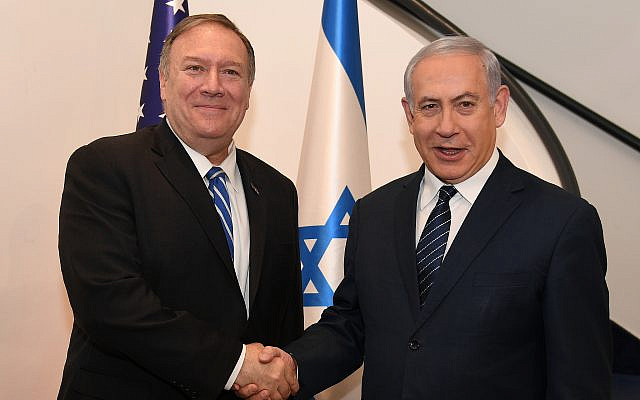
Due to Trump’s unabashedly pro-Israel policies, Netanyahu aligned Israel closely with the Republican Party, prompting some observers to complain that he was damaging Israel’s invaluable bipartisan status in the United States.
For years, Israeli leaders were careful to observe public neutrality with respect to the political divisions between the Democrats and the Republicans. Yitzhak Rabin, Israel’s ambassador in Washington from 1968 to 1973, breached this convention once when he endorsed Republican Richard Nixon prior to the U.S. election. But in general, Israeli prime ministers were careful to stay out of U.S. domestic politics.
This important principle was violated by Netanyahu during the presidency of Barack Obama, who favored a two-state solution and Israel’s withdrawal from lands captured during the 1967 Six Day War. These were policies that Netanyahu opposed, though he always paid lip service to the possibility of Palestinian statehood.
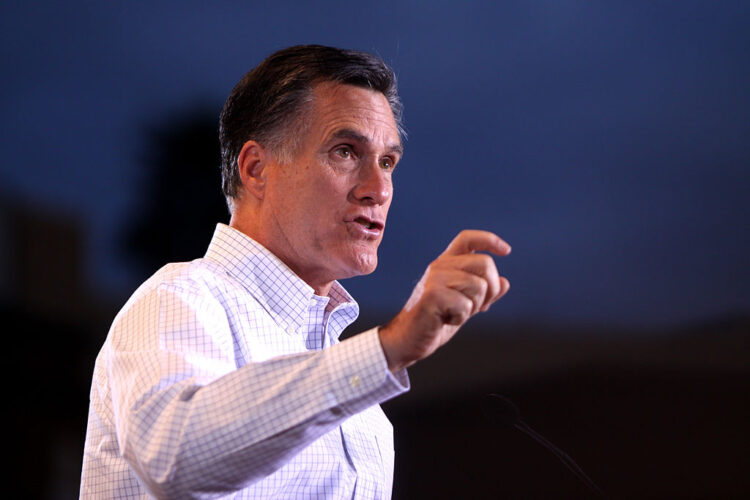
In a blatant breach of Israeli neutrality, a fund-raising event for Republican presidential hopeful Mitt Romney was held in Jerusalem in 2012 under Netanyahu’s auspices. Obama, Romney’s opponent, did not appreciate this.
Nor did he like Netanyahu’s acceptance of a Republican invitation to address a joint session of the U.S. Congress in March 2015, four months before the Iran nuclear accord was signed. Much to Obama’s annoyance, Netanyahu denounced the proposed agreement.
The perception that Netanyahu had moved Israel too close to the Republicans upset some Israeli politicians.
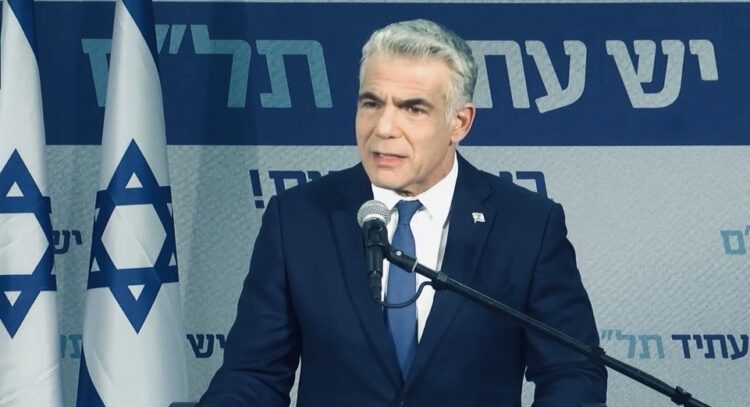
On November 2, Opposition leader Yair Lapid accused Netanyahu of jeopardizing Israel’s bilateral relations with the United States by virtue of his tight relations with Trump.
“Until a few years ago, Israel was above politics in the United States,” he said. “We were a bipartisan issue. All the governments of Israel preserved good relations with the Democrats and the Republicans. Netanyahu decided, mostly for internal reasons, to break with this principle. Netanyahu created an almost complete identification between the current Israeli government and the Republican Party, between himself and President Trump. He wanted to use President Trump’s justified popularity in Israel to gain some points at home.”
“Israel cannot afford to be a branch of the Republican Party,” he added caustically, warning that Israel is “losing the Democratic Party.”
Acutely aware that he was popular in Israel, Trump tried to leverage this perception to his advantage. On October 23, during a three-way telephone call between himself, Netanyahu and Abdel Fattah al-Burhan, the head of Sudan’s Sovereign Council, Trump provocatively asked Netanyahu whether “Sleepy Joe,” or Biden, could have pulled off Israel’s normalization pact with Sudan.
Caught off guard by Trump’s intensely partisan question, Netanyahu hesitated momentarily before saying, “Mr. President, one thing I can tell you is we appreciate the help for peace from anyone in America.”
On November 2, Netanyahu exercised caution yet again when he said that bipartisan U.S. support of Israel has been “one of the foundations of the American-Israeli alliance.” But then he noted that Israel’s relationship with the United States rose to new heights during Trump’s presidency.
Netanyahu’s comments were somewhat ambiguous, being both factual and prejudiced in favor of Trump.
It took Netanyahu 12 hours to congratulate Biden after he was declared president-elect and to thank Trump for his friendship.
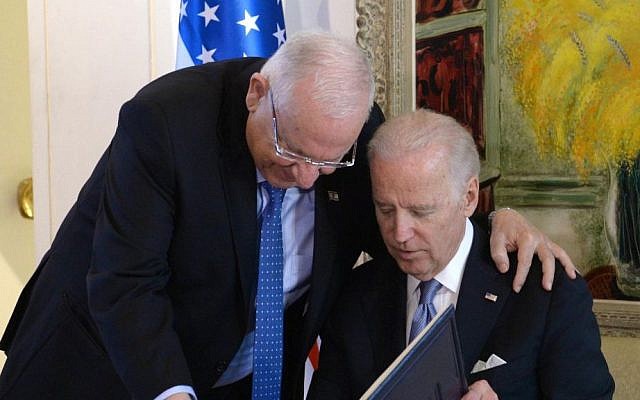
On his Twitter account, he wrote, “Joe, we’ve had a long and warm personal relationship for nearly 40 years, and I know you’re a great friend of Israel. I look forward to working with both of you to further strengthen the special alliance between the U.S. ”
In a second tweet, to Trump, he thanked Trump “for the friendship you have shown the state of Israel and me personally, for recognizing Jerusalem and the Golan, for standing up to Iran, for the historic peace accords and for bringing the American-Israeli alliance to unprecedented heights.”
It remains to be seen how U.S. policy will change under Biden and how Netanyahu will navigate the new terrain in Washington. But for now, this much is certain. The United States’ ambassador in Israel, David Friedman, an ardent supporter of Israeli settlements in the West Bank, will be replaced immediately after Biden’s inauguration on January 20. It would not be surprising if Friedman is already packing his bags.

